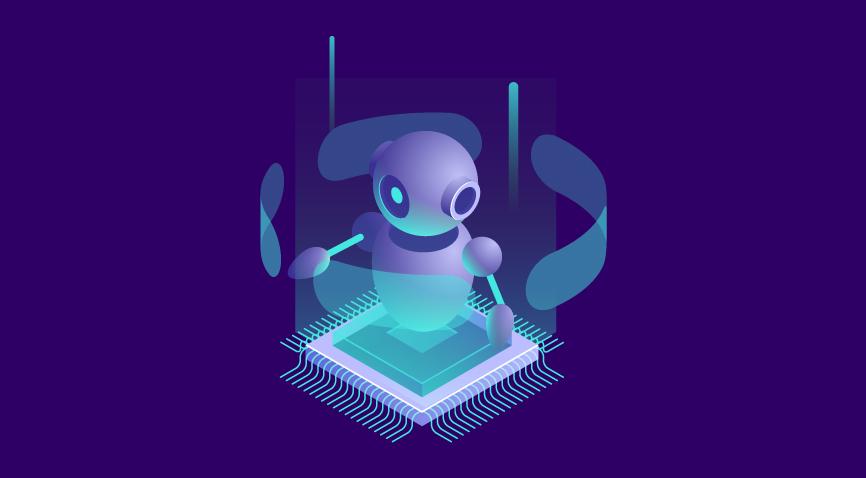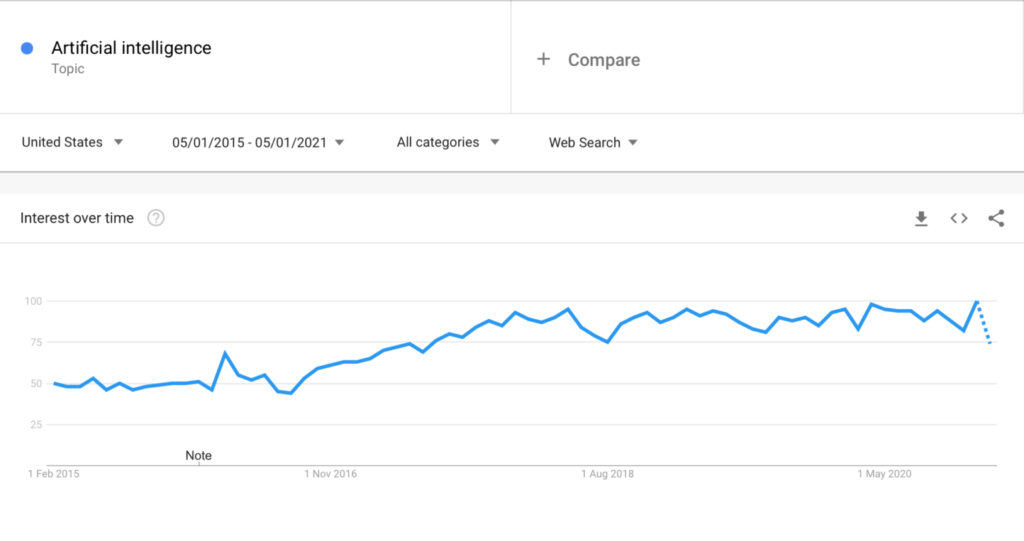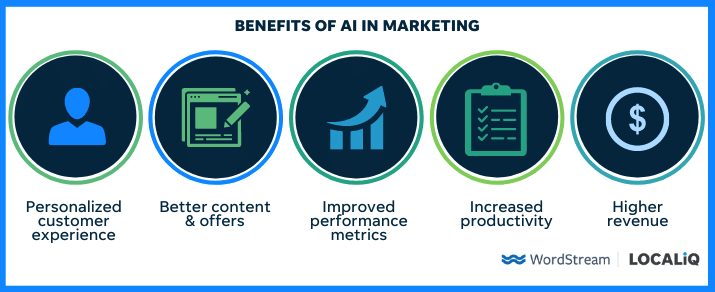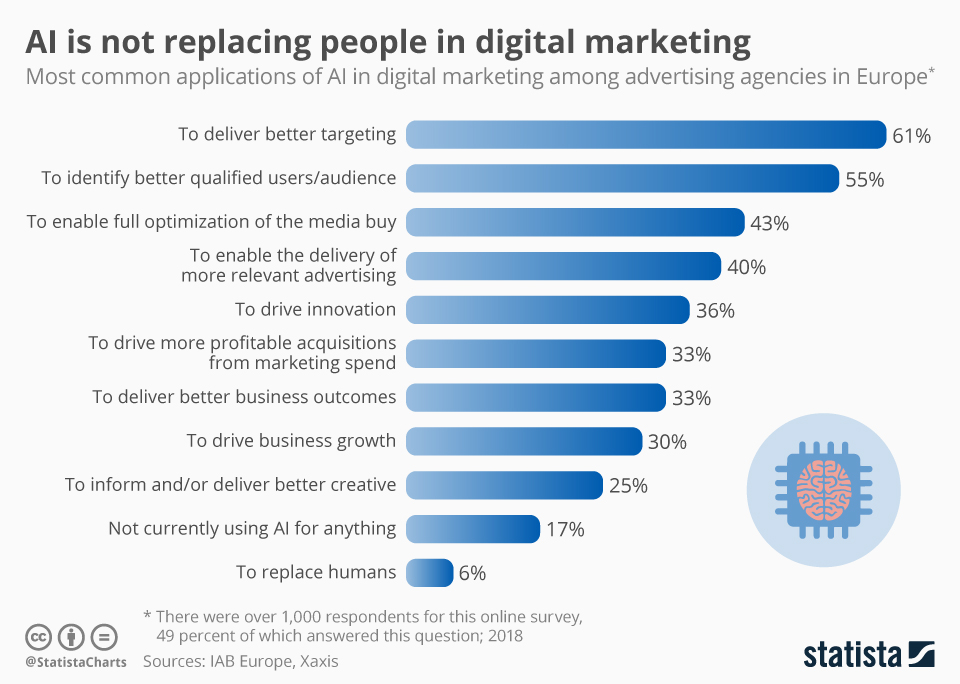Understanding the Impact of Artificial Intelligence Copywriting

Table of Contents
- Defining B2B Copywriting
- Facts about AI and B2B Copywriting
- 7 Ways Complete Use of AI Will Affect Copywriting
- Key Takeaways
- Conclusion
- FAQs
As Artificial Intelligence (AI) makes the world easier to live in, people naturally wonder if this technology will take over their jobs. It’s a fear that often runs through the minds of copywriters, authors, editors, and all wordsmiths, who fear the power of AI copywriting. Is this fear real or imagined? Let’s find out.
Any form of content written to further a business has three responsibilities:
- It should capture the audience’s attention
- It should increase search rankings
- It should improve brand recognition
Defining B2B Copywriting
Business-to-business (B2B) is a business model in which a company makes products to sell to another company. B2B copywriting follows the same model. Here, a content marketing company creates content or copy to promote their clients’ products or services. For example, a B2B copywriter could write blog posts, newsletters, sales copy, marketing literature, or internal documents to promote his clients’ business.

Facts about AI and B2B Copywriting
One of the most innovative technologies of this century is AI, and it brings with it great scope. Although many writing professionals worry that this technology could make them redundant, the truth is AI supports writers; it does not replace them. In this role, writers achieve much more in a short time.
Speed and automation
Apart from its trademark speed, AI also understands customers’ sentiments and can track articles that impact the market. Since it works best with huge chunks of data, it can automate your marketing campaigns and use the resulting trends to get ahead of your content calendar.
It can also have its eye on your competition so that you always make the right online impact.
Working together
Although AI can work positively for copywriters, the best situation is for both to work hand in hand so that B2B copywriters can achieve much more with the help of technology.

How artificial intelligence helps copywriters
Some copywriters might find it difficult to consistently produce the same high level of engaging content supported by informational articles. Here’s where AI plays the role of a good samaritan by generating copy for various businesses using its specialized tools. These tools can understand human language and, with the help of data, can produce the kind of content humans would. So, AI helps generate the highest quality of B2B copywriting.
7 Ways Complete Use of AI Will Affect Copywriting
Although AI plays a supportive and enhancing role in copywriting, it does have its limitations. So, it can never completely take over the role of copywriters; in fact, it can undoubtedly endanger it to an extent. With the growing popularity of this technology, it is natural for copywriters to be wary of this technology.
Here are 7 reasons how completely depending on AI will affect copywriting.
1. AI misses out on the meaning
With AI-powered tools like Google Translate, you can translate vast volumes of data in a matter of minutes. But, instead of mindless word-for-word translation, transliteration is the key, where the sense of a passage is conveyed.
2. AI lacks empathy
AI might produce content just like humans, but it will lack empathy, value, and accuracy.
3. AI doesn’t understand human emotions
Emotions are vital for a good copy that converts to sales; copy needs a blend of the factual and emotional, which is something AI can’t do.
4. AI isn’t a fact-checker
A piece of good writing is generally based on research. But, AI isn’t research-centric; it works on research carried out by humans.
5. AI doesn’t understand strategy
AI has the least knowhow of business objectives and how to achieve them. AI is unaware of where the reader stands in the buyer’s journey or what it will take to become one.
6. AI does not know branding
You can’t depend on AI copywriting to work on your brand’s message or purpose because it is ignorant of these. For someone with years of experience, you will know how to proceed, but not AI.
7. AI churns out articles
AI works well by peppering your content with keywords as it draws info from the Internet. The result, article spinning with garbled sentences. Often, this leads to content stuffing, something Google abhors.
Right now, AI copywriting is ahead of human copywriters only in one respect: speed. At lightning speed or faster, it can produce text the way you want it. But, the demands of copywriting vary from job to job and various other factors.
Besides, copywriting isn’t a machine-led job; instead, it is creative and calls for language fluency. Can a bot mimic this and come up with a highly creative and unique copy? We don’t think so. Sarah Feldman’s article and supporting graph, titled ‘AI Is Not Replacing People in Digital Marketing’, corroborates our view. According to this article, jobs in digital marketing are not going the way of AI. Employers still prefer to have human minds working on their marketing documents.

Key Takeaways
- AI is endowed with futuristic capabilities, particularly in the writing field. It can work with copywriters but cannot entirely take over their space.
- One of the critical features of B2B copywriting is empathy, which AI lacks. Here’s where human B2B copywriters score over AI.
- B2B copywriters should take the best of this technology to refine their craft without worrying too much about being made redundant.
- Robots don’t have the subtle skills and capabilities that copywriters hone over the years, so their copy won’t be as good.
- Copywriters won’t be replaced by robots anytime soon, but the latter is undoubtedly a challenge to them.
Conclusion
The notion that we’ll soon live in an age fuelled by AI copywriting is entirely wrong. Human copywriters can, at best, be challenged by the abilities of robots. However, they can work together to generate high-quality, cost-effective, and time-saving B2B copywriting.

FAQs
AI is the ability of a computer-controlled robot to carry out tasks that humans usually do. These robots have the intelligence that humans have to perform specific tasks.
AI has a subset titled ‘content intelligence’, which is responsible for creating content. This specific intelligence uses the best of AI capabilities to create impactful posts for marketers.
In particular large organizations of the world, AI has already begun replacing their in-house copywriters. This decision was taken after robots were put through a test in which they performed better than their human counterparts. Naturally, this is causing a stir in the marketing world.
According to Rowan Zellers, Allen Institute for AI, Google can do so, at least as things stand.
A B2B copywriter is a professional who specializes in providing specific copywriting services to companies. S/he creates marketing literature that promotes manufacturers’ products or services. Such products or services are sold to other businesses where needed.
B2B copywriters are nervous about AI because:
– It can proofread data and offer suggestions for changes.
– It can read through vast tracts of data and emails, press releases, etc., daily.
– With AI, search engines can work more effectively, understanding your content better.
Latest Blogs
Explore how Google’s 2025 AI search updates triggered ranking chaos. Learn actionable strategies to adapt your SEO for AI Overviews, zero-click searches, and SERP volatility. Stay ahead now.
Learn how to rank on AI search engines like ChatGPT, Perplexity, and Gemini by optimizing your content for authority, structure, and relevance. Stay ahead in AI-driven search with this strategic guide.
Explore the best healthcare SEO services for your medical practice. Improve online visibility and effectively reach more patients in need of your services.
Get your hands on the latest news!
Similar Posts

B2C Marketing
5 mins read
Top Choices for Best Content Marketing Services in B2B Industries

Artificial Intelligence
5 mins read
How A Lead Generation Specialist Can Use AI-Powered Content Funnels to Drive Conversions

Artificial Intelligence
4 mins read